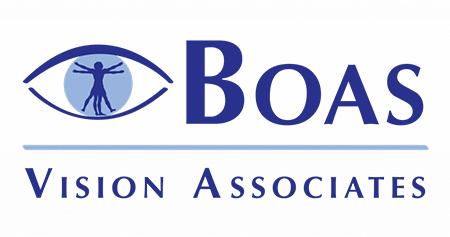![]()
Treatment Options: Vision Therapy Eye Exercises and/or Lenses
There is no medication or surgery that can fix eye tracking problems. Reading lenses and/or bifocals can sometimes be helpful to reduce symptoms, but glasses alone usually can not correct the problem.
Vision therapy is very effective in correcting eye tracking problems and produces lasting results. Vision Therapy eye exercises recommended by our optometrists in ExtonTh can improve eye tracking at any age.
What is Normal Eye Tracking and Why Is It Important?
When vision is normal and healthy, the eyes automatically move (track) smoothly, accurately, and quickly. Eye tracking movements are an essential part of good vision.
Visual actions and normal eye movements that require good eye tracking skills
- Scanning for information (eye pursuit movements)
Scanning the environment for information requires rapid and accurate eye movements. - Following/tracking moving object(s) (eye pursuit movements)
For example, eye tracking is essential in sports activities where the eyes must follow and track moving objects and players. - Focusing while jumping from one target to another (saccadic eye movements)
- Directing hand movements (eye-hand coordination)
Eye Tracking Problems
With eye tracking problems, eye movements are slow, inaccurate, unreliable, sometimes jumpy…
Signs and Symptoms of Eye tracking problems:
- Frequent loss of place and/or skipping lines while reading
- Frequent drowsiness or sleepiness following short periods of reading
- Confusing one word with another as the eyes skip around during reading
- Habit of using a finger or marker or ruler as an aid during reading
- Excessive head movement while reading, writing or doing other close work
- Poor comprehension during reading.
- Seemingly careless errors during close work
- Poor reading comprehension
- Attention and/or behavior problems specifically during reading or other close vision work.
20-20 Eyesight and Eye Tracking Problems
The standard 20-20 eye exam does not test any eye movements, including eye tracking.
A person can pass the 20-20 eye exam and still have undetected eye tracking problems.
20/20 just means that the person can clearly see a designated letter on a standard eye chart at a distance of
20 feet (equivalent to what a person with normal vision should be able to see at 20 feet).
There is so much more to good vision than 20-20 eyesight!
Children Do Not Outgrow Eye Tracking Problems
According to Pediatric Developmental optometrist Dr. Michael Gallaway, FCOVD, “Eye tracking skills are considered the fine motor aspect of vision, and like other fine motor skills, should continue to develop as children get older.” However, if a child has a deficiency or developmental delay in foundational eye tracking skills, they are not going to outgrow their eye tracking problem. Accurate diagnosis and effective treatment is necessary to get a child back on track with the development and establishment of normal eye movements.
Proven Connection between Eye Tracking Problems and ADD ADHD
In a recent peer-reviewed scientific study at Tel Aviv University in Israel, researches found strong evidence that involuntary eye movements are an indicator of Attention Deficit Hyperactivity Disorder (ADHD). Researchers used an eye-tracking system to monitor the eye movements of two groups of adults in conjunction with an ADHD diagnostic test called TOVA.
One group of study subjects, who had previously been diagnosed with ADHD, took the test twice: once without medication and again when under the influence of methylphenidate, a drug commonly used to control symptoms of ADHD. The second group of adults — not diagnosed with ADHD — served as the control group and did the eye-tracking test without medication. The results found a direct correlation between ADHD and the inability to control eye movement in the anticipation of visual stimuli.
On the subject of eye tracking, eye movements, and ADHD diagnosis, Dr. Glen Steele, AOA InfantSEE™ committee chair said, “Optometry has always stated that eye movements are linked to reduced attention, often leading to a misdiagnosis of ADHD,” Dr. Glen Steele emphasizes, “This study [the Tel Aviv eye tracking study] furthers the understanding that eye movements are linked and should be addressed.” Dr. Steele continues, “The control of eye movements is foundational for everything an individual might do in life and if compromised, it can lead to reduced ability and function.” Dr. Steele advises, “Parents of children with suspected attention disorders should be encouraged to have their children undergo a comprehensive eye examination by an optometrist in order to determine the extent that vision might play in the overall process,”
There’ so much more to healthy vision than 20/20!
Our comprehensive vision exam in Exton, PA goes beyond 20/20 to evaluate many important visual skills including eye tracking.

By Appointment Only